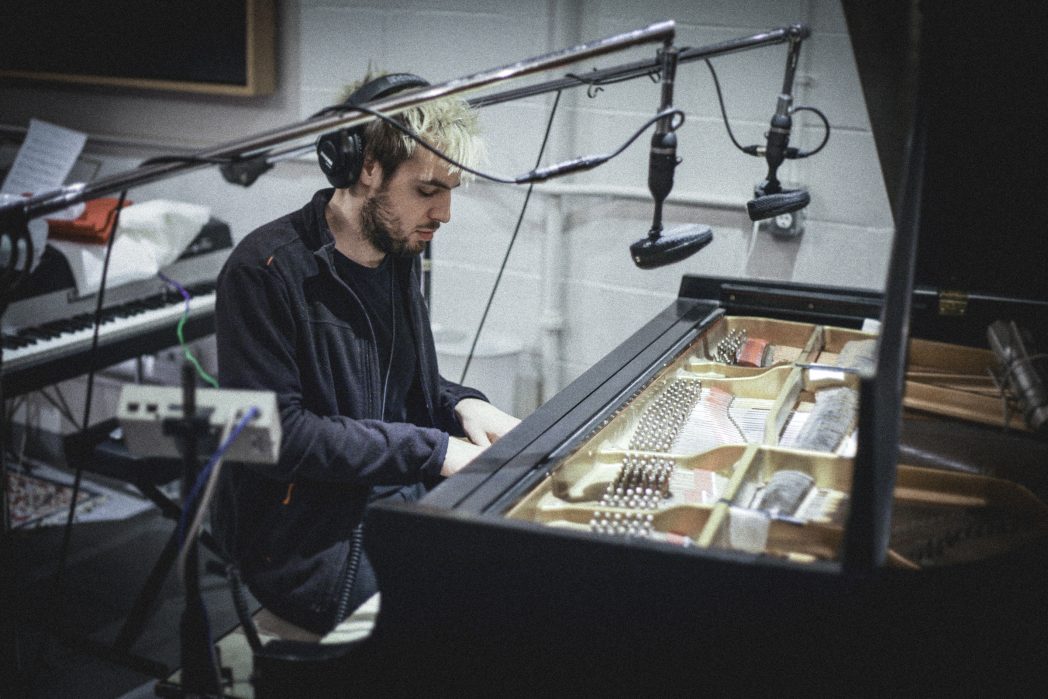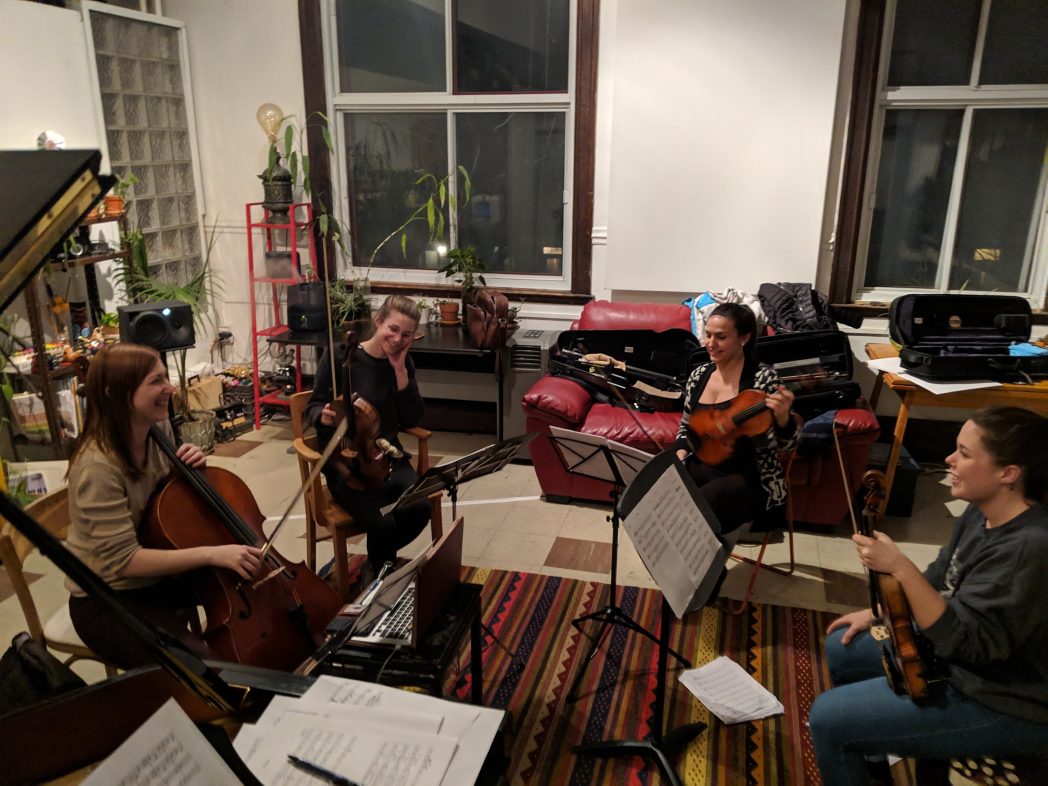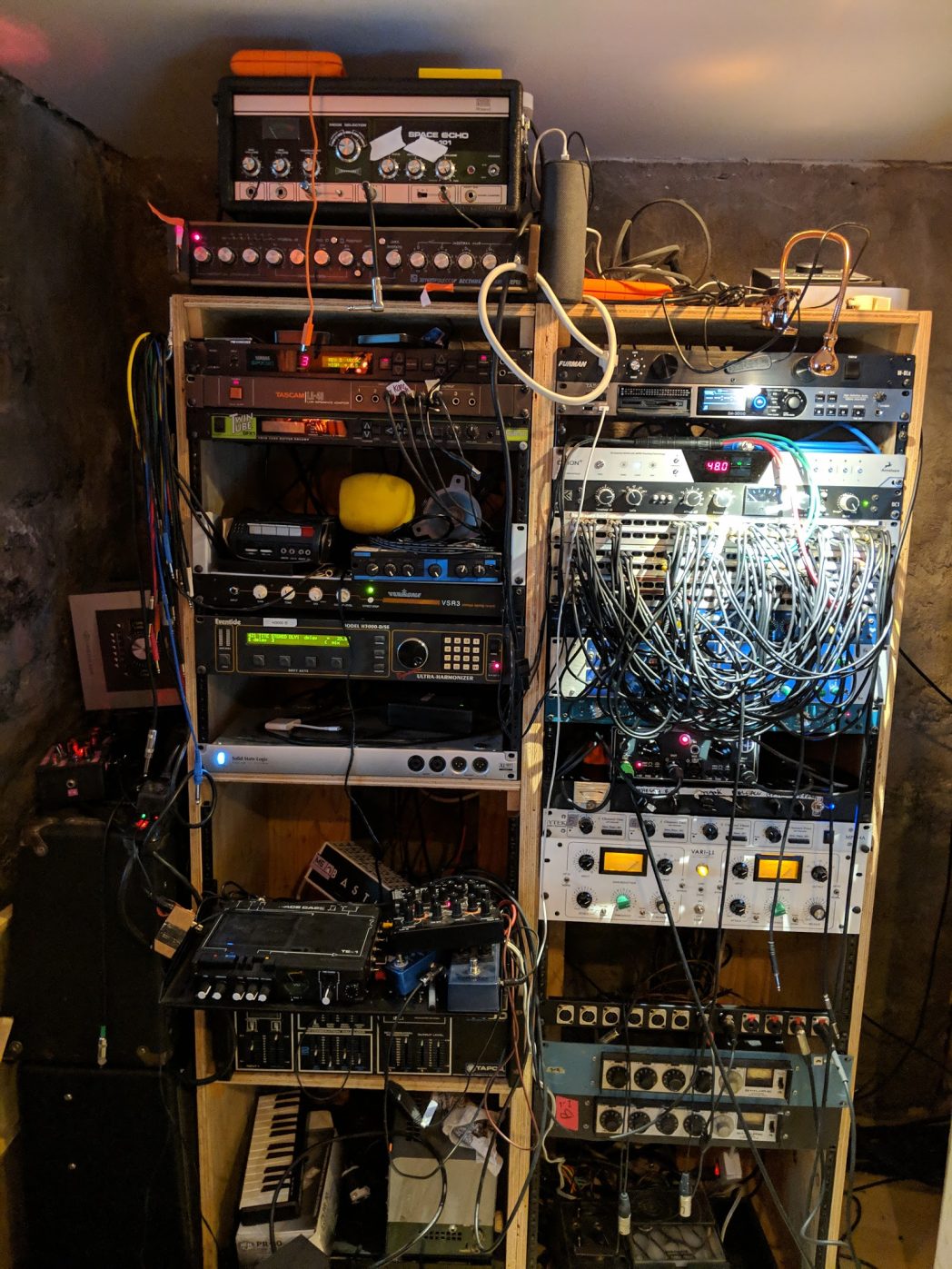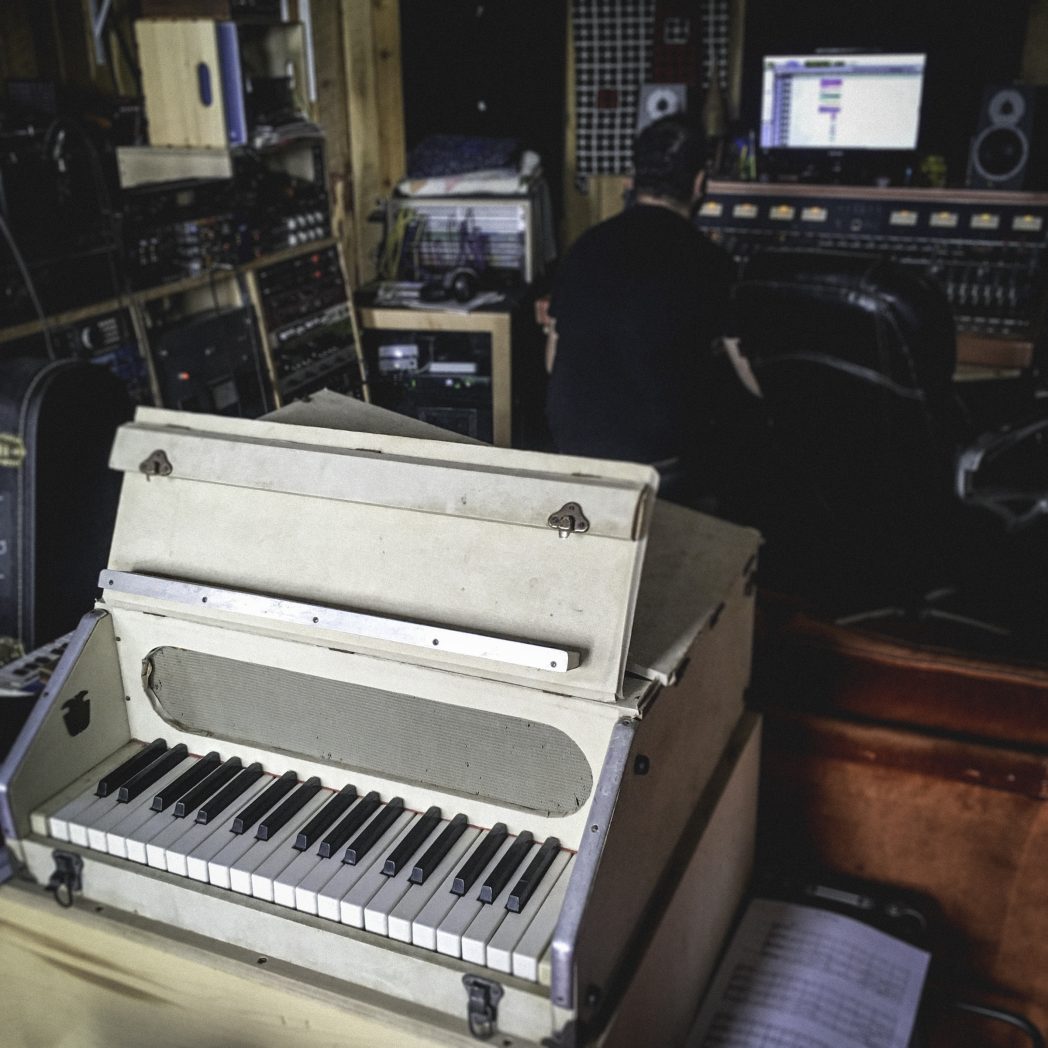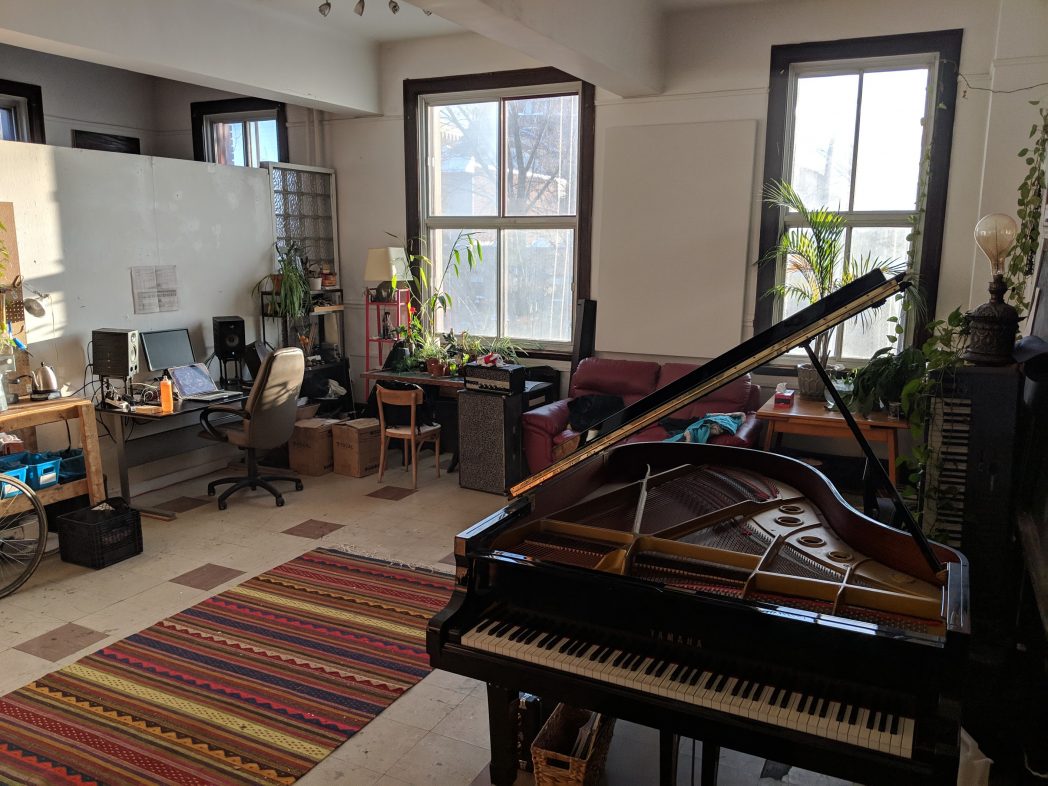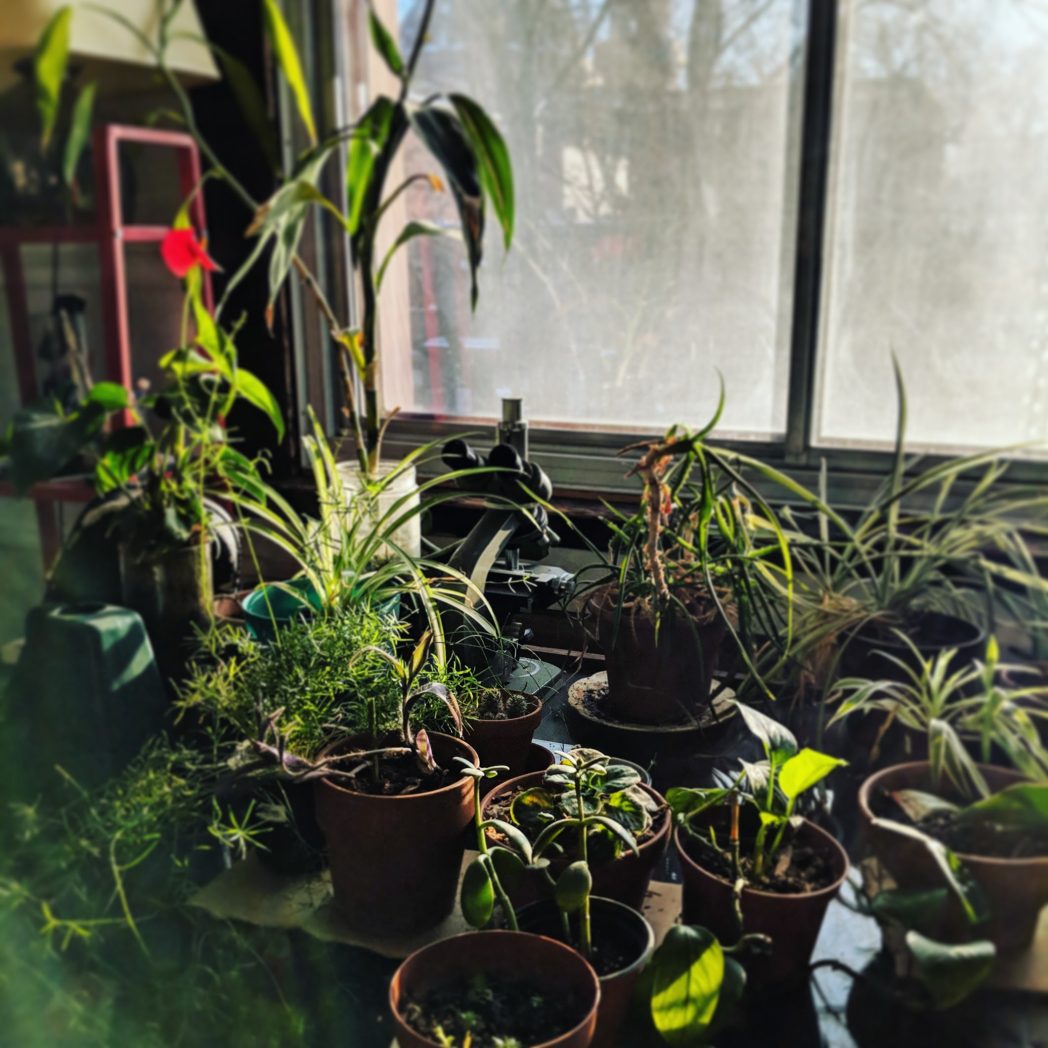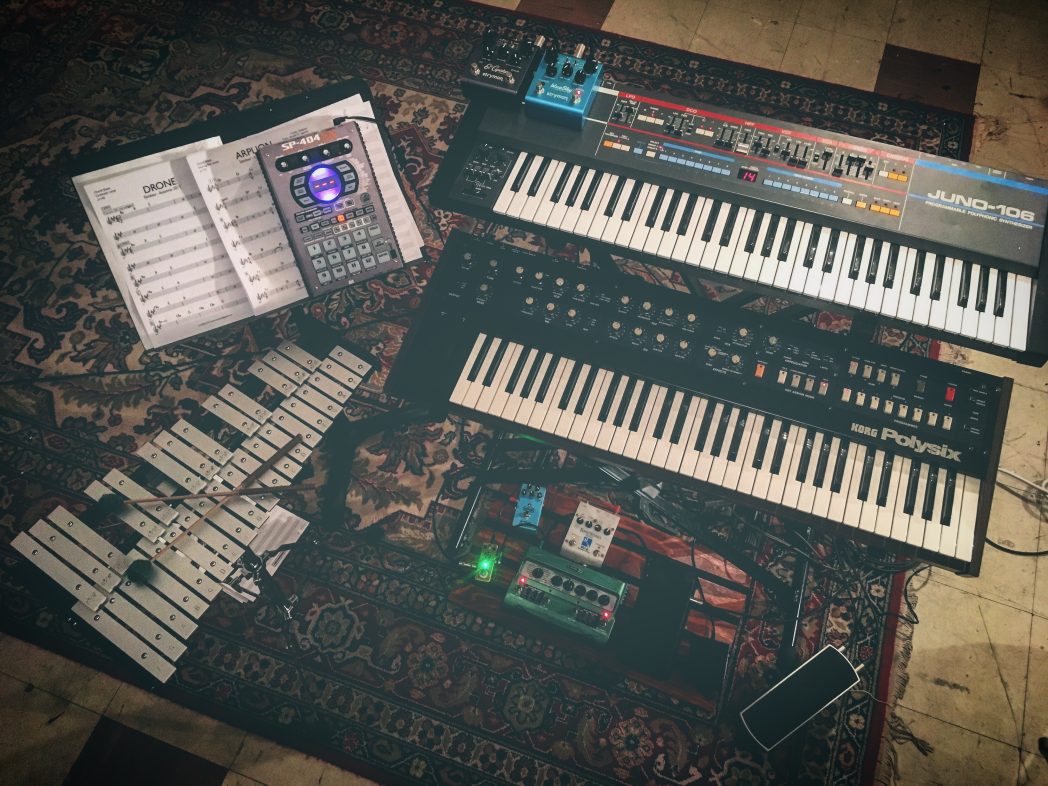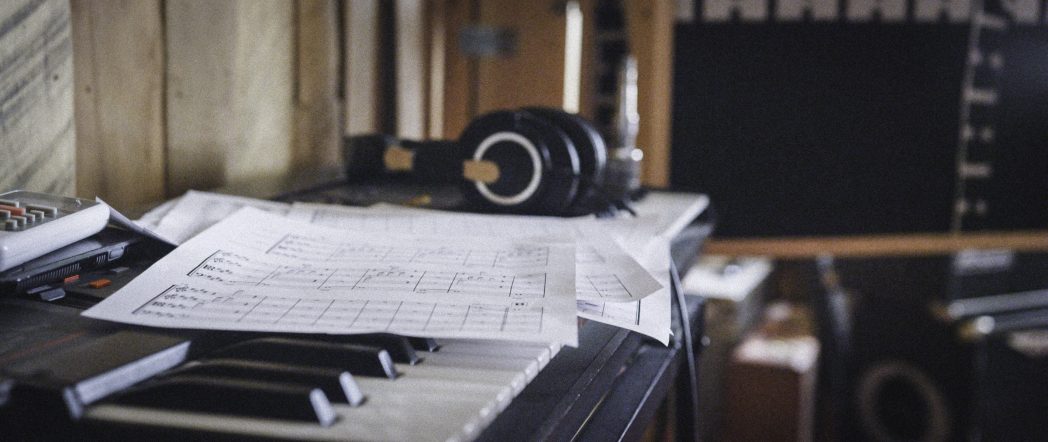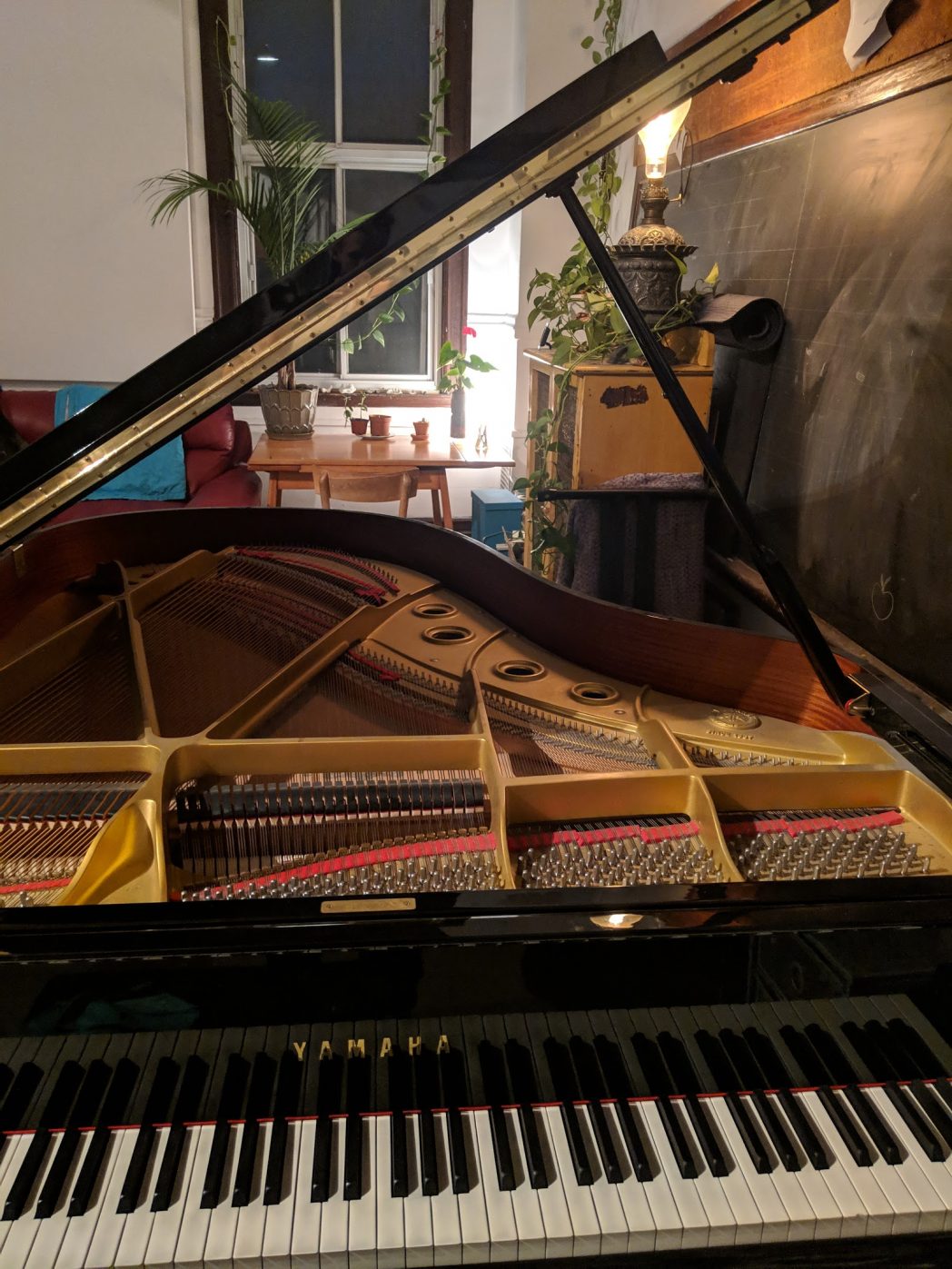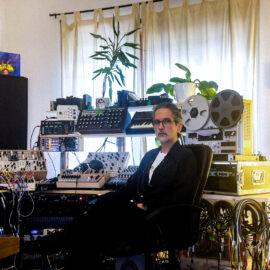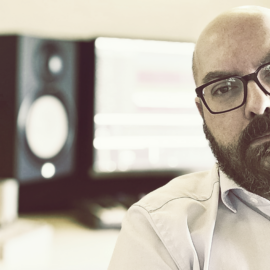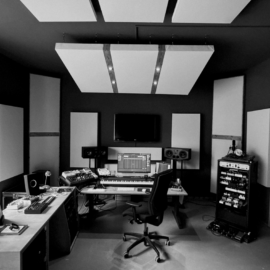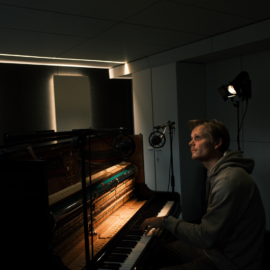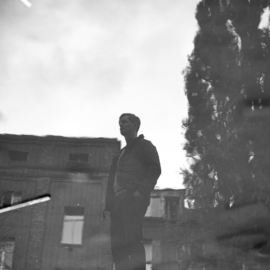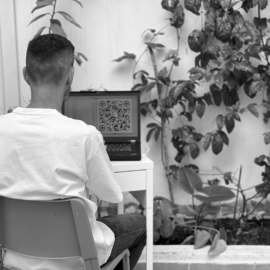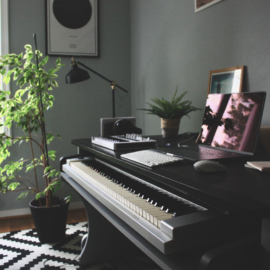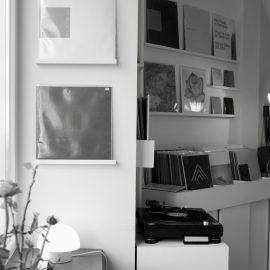Let’s start at the very beginning. Can you tell us how you got involved in composing, and what was your very first piece of gear?
If we go back very early (maybe when I was around 10 years old) my neighbour had this little toy electronic keyboard. It had the basics piano/flute/organ/strings sounds and I use to go to his place just to mess around with it. It’s as far as I can relate to using the musical gear. Later in high school, is was playing bass guitar in a heavy metal band and was using this MIDI software called Power Tab to compose for all the instruments of the band using only numbers in guitar tablature display – that’s actually how I got into composing. I really need to search in my mom’s old computer drive, I’m sure I could find some gems in there! Maybe I’ll disappoint a few but I’ve never been a gear addict so I don’t have an extended list of vintage tape echos, crazy ribbons microphones and expensive synthesizers to show. I prefer renting all-equipped studio and engineers who know their way around it as I can concentrate on the music and sound. I’ve always wanted to keep things minimalist in my creative process as I’ve always been really scared of the endless possibilities of music production. The paradox of choice is something I have to deal with every day!
How many different studio iterations have you gone through, and what does your final setup look like right now?
In recent years I’ve rented a beautiful space which was a classroom in an old school. I was sharing it with a piano teacher who had a nice grand piano. This space had big windows and lots of plants. It was more of a safe/work creative place than an actual recording studio. My friend and Montreal pianist, Jean-Michel Blais, was also using the space for rehearsing. Unfortunately, I had to leave the space last January and now I’m back to my home studio! But for a long time, I’ve had my workspace in my bedroom. My first “studio setup” was the traditional soundcard/monitors/88 notes MIDI keyboard and I would set up all my guitar pedals in a chain and use them as rack effects. But at the end of the day, I would mostly use in-the-box effects for writing music and used the pedals for guitar only… until I came across the…..
Tell us about your favourite piece of hardware.
… Strymon El Capistan echo pedal. I fell in love with that one as soon as I heard it. It was the closest I could get to the tape delay wobbly vintage sound. I still use it today, its really versatile and I’ve come to understand a lot about tape delay with that little thing.
And what about the software that you use for production?
Ableton Live is my way to go. I’ve always been very visual. I’ve learned to play the piano by ear, but mostly with sight by just observing the black and white keys and understanding which combinations sound good. Ableton is part of my creative process because I can use the Session view as my canvas. I can just record ideas, creating sounds here and there and drag in effects and audio files on the fly. Then, when I have a palette of different ideas and textures, I use the arrangement view the same way by dragging things in and out. I also write and arrange for strings and horns with VSTs sounds. That helps me get a little closer to how its gonna sound with real players. I pre-produce everything in there as far as I can go. Afterwards, when I go in studios to record with the string ensemble and real players, I transfer all my tracks to Pro Tools, the studio standard. I’m not so much comfortable with Pro Tools, so I usually work with an engineer who helps me edit and prepare all the session for the mix. The mix stage is also done in Pro Tools with an engineer. I just haven’t really taken time to learn it properly. Working with someone helps me focus on the sound more than the technicality of the editing process. Also, I enjoy working with other people – it makes to whole production process less lonely and more collaborative.
Is there a particular piece of gear that you’re just dying to get your hands on and do you think one day you’ll have it?
I would really like to try an Ondes Martenot – I’m so fascinated by that thing. I can imagine the expressivity that you can get out of it. It creates that Theremin-like sound, but I see it as a sort of electronic version of a string instrument. One of my good friends just found one while touring in Japan. I will be visiting him in the near future to record some of those for my next record. Really excited about this!
Any particular new techniques that you tried out for your new album?
There was a celesta (keyboard glockenspiel) in the studio where I was working and I’ve used it to double other sounds. I’ve always wanted to experiment with tape delays, so we passed those celesta parts through an Echoplex and I would manually play with the time head to make it wobbly. It was really fun. You can hear it mixed with the plucky synth part in the climax in Orion (Mythologies). At the end of the piece Ursa Minor (Caroline’s Theme), I wanted to create this joyful, Christmas-ish moment. The main progression ends in a major chord and is continually played throughout the end. The strings are doing all kind of stuff and I’ve added some vibraphone and glockenspiel. I wanted to make it lusher so we passed all the bells through some tape machine again and I would manipulate different parameter of the delay on the fly while recording.
What does your live setup look like, and what do you bring with you when you travel for an extensive tour?
I haven’t done any tours yet, but I’ve been playing a lot around Montreal where I live. We have these cultural houses in every city and neighbourhoods. Those venues are most of the time really nice and the working conditions are very good for the musicians. But I also like to play in unusual venues (chapels, art galleries, living rooms, recording studios). Depending on the budget my live setup changes a lot. I’ve played shows where we were 11 musicians on stage. I’ve also done some solo performances with foot controllers and synths on the piano. My most recurring setup would be the string quartet and me at the piano with a sampler to trigger soundscapes. Then, I have someone playing another keyboard (and glockenspiel) and electronics stuff (sub-bass, drones). It’s always changing, my musicians are really good at adapting to different formulas/venues. I’m starting to feel more comfortable bringing in the laptop on stage for some new electronics pieces that I’m working on for the next record, but it still feels weird as I don’t like my music to be “locked” on a grid when played live.
What is the most important environmental aspect of your current workspace and what would be a particular element that you would improve on?
Light would be the most important aspect. I don’t like working without natural lights. Even when we record I like to keep the curtains open. Some would say it’s not really good for recording because of glass reflections, but I think it helps create a more joyful experience for the engineers and the players. Unfortunately, I usually get “in the zone” during night time. I had to make peace with this since I enjoy to wake up early to work, but I rarely feel as good and inspired as late in the evening. Therefore the composition process usually happens at night, but I always book studio sessions early in the morning so we could have lots of daylight.
What can you tell us about your overall process of composition? How are the ideas born, where do they mature, and when do they finally see the light?
One thing for sure is that my process is veryyyy long. That’s actually the premise of my latest release which is about time. I’ve had lots of thoughts on my creative process and I had to accept that things take time. It could take years from when I improv a little something on the piano until it is grown into an actual piece and then recorded. The problem is that I never record my ideas. I just play them over and over and they evolve in that way. Because I know that if I record them, they will be resting/rotting there in my computer. I feel it’s like maintaining a bonfire. If I just leave it like that it will eventually burn out and I won’t be connecting as much with the piece. I have to feed in some wood every now and then. When I play it, I hear the ideas in my head of how to song could end up (strings and electronics arrangements). A lot of my creative process is more about thinking rather than going and try different ways to write/record it. However, some of my favourite pieces that I’ve written were all composed, arranged and produced over a 45 minutes in-the-zone window. That’s really rare because I’m too much in my head, but I take it when it happens!
After the piece is complete, how do you audition the results? What are your reactions to hearing your music in a different context, setting, or a sound system?
First, I have to make peace with the fact that it never sounds as I hear it in my head. That’s because I’m still learning my craft and production techniques and I’m getting less overwhelmed with the experience. It just sounds different, but it’s great and I have to work from there. I don’t like the post-production process since its really complex and there are some many ways the piece could unfold. I specifically need external advice at that stage. When I score for short films, I always love the feeling of listening to my work in a big cinema with a huge sound system. Seeing the picture on the big screen is also incredible after working on it for months on a little monitor. At a premiere, I always sit next to the sound designer and its really fun since we both are fully aware of what’s happening sonically.
What gets you inspired?
I never really know what to answer to that question. I would like to say open spaces, relationships and sunny winter days, but I’ve come to realize that inspiration comes and goes like everything in life. Some people think artists are creating best when they are sad or troubled. I think it’s a really romantic way of seeing this. For my part, I would never be able to work properly if I’m anxious or sorrowful. Like everything in life, I do better things when I’m feeling great and confident. A lot of my music has been written while doing artist residencies at the Banff Centre for Arts and Creativity in western Canada. I’ve had the best time of my life over there as I was surrounded by an amazing, positive and creative community of talented people. I was feeling secure, happy and confident, which makes the best conditions for creating things.
And finally, what are your thoughts on the state of “electronic music” today?
The recording process of music is so digital and computerized that every music is somehow electronic. Every musician has to deal with that. For me, it feels really weird being in a room full of perfectly placed microphones and engineers pressing buttons to capture this one and only moment of performance. Even if you have a more simple setup, it’s always the same process, having to capture vibrations that will be going through so many levels of electronics. Therefore a lot of musicians, including “acoustic artists” are drawn to explore electronic stuff. As for the electronic music scene, everybody must know that it’s really hard to dissect a line since everything is crossed-over in never-seen-before creative and innovative ways. It’s a good time to be alive.
